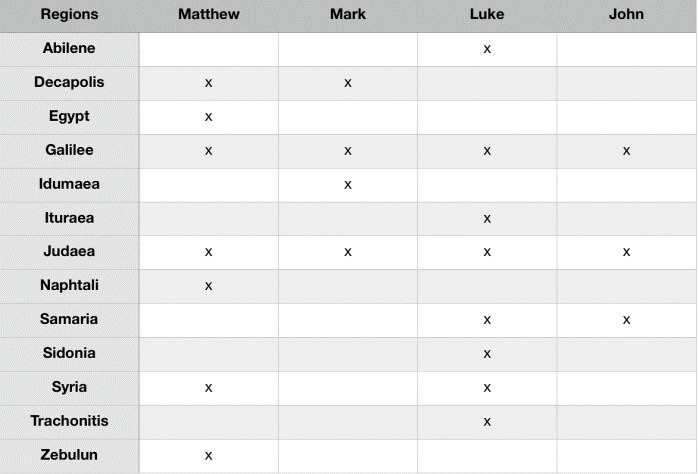By Carter Keller
In recent years, America has once again become susceptible to racial prejudice on a cultural scale. It is difficult, however, to determine how widespread racism is in the nation. Especially since those currently in the spotlight, politicians, media, cultural influencers, etc., are constantly making charges of racism at every turn. However, it is undeniable for all of us that, at least, racial suspicion has come back with a vengeance. Often we ask the questions of “How?” and “Why?” and go down rabbit trails of factors such as poverty, institutional racism, white privilege, etc. I am not interested in getting lost in the weeds. I am interested in the core issue, how to fix the core issue, and then moving on to fry bigger fish. I ask you to join me, and our first step, naturally, is to define racism. Once we have done so, we can then discuss the core issue which drives racism and how to solve it.
Racism is the idea where one person or people group is superior to another person or people group based solely on the fact they are a member of this particular group. When we “dig a little deeper,” (to borrow a phrase from Mama Odie), we learn racism is another spawn of a deeper problem: hatred. Hatred takes many forms, and racism is just another rotten incarnation. And yet, this is still not enough. Where does hatred come from? Why does hatred exist in any form?
Without going too far into another topic for another paper, it is undeniably clear God exists. No man can escape him. C.S Lewis presented one of the greatest arguments against atheism in human history when he wrote in The Case for Christianity;
“Supposing there was no intelligence behind the universe, no creative mind. In that case, nobody designed my brain for the purpose of thinking. It is merely that when the atoms inside my skull happen, for physical or chemical reasons, to arrange themselves in a certain way, this gives me, as a by-product, the sensation I call thought. But, if so, how can I trust my own thinking to be true? It’s like upsetting a milk jug and hoping that the way it splashes itself will give you a map of London. But if I can’t trust my own thinking, of course, I can’t trust the arguments leading to Atheism, and therefore have no reason to be an Atheist, or anything else. Unless I believe in God, I cannot believe in thought: so I can never use thought to disbelieve in God.” (C.S Lewis; The Case for Christianity p. 32)
We are able to learn who this God is through the Bible. Among an infinite number of things, He is the Source of Life, Love, Truth, Good, and Peace. If one were to reject God, they reject everything about Him, including Life, Love, Truth, Good, and Peace. When one rejects Life, Love, Truth, Goodness, and Peace, the resulting world will be marked with Death, Hatred, Lies, Evil, and Chaos. Thousands of years ago, we rejected God in the Garden of Eden. Hatred came with sin, and sin separates us from God. When I drop a ball from the top of a building, it is only a natural consequence the ball will fall to the ground due to gravity. Just as falling is the natural consequence of gravity, death and hatred are the natural consequence of sin, as Scripture clearly states, “The wages of sin is death.” (Romans 6:23)
However, God did not want us to be slaves to such a fate! It is possible to be reconciled with God, as 2 Corinthians 5:20-21 states: “Therefore, we are ambassadors for Christ since God is making his appeal through us. We plead on Christ’s behalf: “Be reconciled to God.” He made the one who did not know sin to be sin for us so that in him, we might become the righteousness of God.” God made a way through His Son, Jesus, as Scripture declares over and over again:
- “For God loved the world in this way: He gave his one and only Son so that everyone who believes in him will not perish but have eternal life.” (John 3:16)
- “A thief comes only to steal and kill and destroy. I have come so that they may have life and have it in abundance.” (John 10:10)
- “Jesus said to her, “I am the resurrection and the life. The one who believes in me, even if he dies, will live.” (John 11:25)
- “If you confess with your mouth, “Jesus is Lord,” and believe in your heart that God raised him from the dead, you will be saved.” (Romans 10:9).
God wants us to be reconciled to Him in a perfect relationship with Him. God wants humanity to be saved from our fate of death and separation so we can live forever and abundantly with God. It is through faith in Jesus’ death on the cross and resurrection from the dead alone we can be saved. There is no other name under Heaven by which we may be saved, as God has also stated in His Scripture (Acts 4:12).
The Gospel, or Good News, is the truth which tells us we may be reconciled with God the way the Prodigal Son was reconciled with his father in the book of Luke, (Luke 15:11-32). So how, now, shall we live? Once we are reconciled with God, immediately, God indwells us as “temples” walking around the earth (1 Corinthians 6:19). Once we are reconciled with God, we are reconnected to God, and therefore we begin to live as such. Since God is the source of Life, Love, Truth, Good and Peace, in communion with Him, we begin to live our lives spreading Life, Love, Truth, Goodness, and Peace. Since God is love, we as believers and reconciled children who are saved by grace through faith must love our brothers and sisters, neighbors, and even enemies (1 John 4:7-21; Ephesians 2:8-9; Matthew 5:43-47). There is no room for hatred at the feet of Jesus, nor is there room for division at the foot of the Cross, for all of us equally have sinned against God (Galatians 3:28; Colossians 3:9-11; Romans 3:23).
When we are reconciled with God, we are reconciled with each other. This reconciliation is expressed in its fullness through our actions in fulfillment of Jesus’ words, “Love one another as I have loved you.” (John 13:34-35). And how did Jesus love us? By laying down His life for us. Sacrificing His life as a ransom for our souls in order that we may have His righteousness and perfection placed on us to fulfill His desire where we “may be perfect as [our] heavenly Father is perfect” (Matthew 5:48). There is no special love or any rituals we must perform to be reconciled to one particular group of people. The mission of the Church is to spread the Gospel concerning reconciliation with God (2 Corinthians 5:20-21). When we are reconciled to God, we are able to be reconciled to each other.
Racial reconciliation should not be a special category of reconciliation. Racism and all other forms of hatred are utterly defeated and crushed when we just love each other without any goals, agendas, and without making a point about the skin color of the people in the room. Believe it or not, if we are reaching out to a specific people group because they are a specific people group, (for example, if we engage with a community outreach program just to reach a neighborhood because it is predominantly African-American), this is simply compounding and multiplying the problem. You are still focused on the color of their skin and not on the state of their souls. You are still focused on achieving diversity when, by default, humanity is already diverse because no two people are alike. You are still focused on racial division, and by acknowledging there is something different about them, you are simply exacerbating the issue. Children only learn racism from those who teach about it, and only act as if there is division if others tell them division exists. We do not make “black” friends, or “white” friends, or “red” friends. We just make friends. If we say “blackness” or “whiteness” is a “part of who I am,” then we have misunderstood what God says when He calls us to abide in Him and find our identity in Him and nothing else (John 15:4-5; Exodus 20:3).
Christ did not call us to reconcile the races. He called the one race named Mankind to be reconciled to God, and then be reconciled to each other. If we simply live out the Gospel in our lives, racism will die, hatred will retreat, and Love will win the day. The Gospel of Jesus Christ and the child-like innocence which follows (as Jesus used when talking of how to enter the Kingdom of God) are the only real and lasting cures for racism and its root causes. The Church needs to stop focusing on race. Our primary job is not social justice reform on this side of Heaven, nor is it our job to pursue diversity as a goal to be achieved. Our job is to spread the Gospel to the corners of the Earth and pray the Holy Spirit would move in the hearts of the lost so they would repent and be reconciled to God through Christ. Our only desire should be to see as many people as possible be saved by the blood of Jesus, the Messiah, King of kings, Lord of lords, Prince of peace, the great I AM and Creator, and Sustainer of all things. All other messages, mantras, and ideals fall to the wayside, and they pale in comparison to the glory and freedom of Jesus of Nazareth, risen from the dead, and ascended at the right hand of God. Our priority is the Gospel, and we have no other. We must abandon racial reconciliation as the goal. We must recognize diversity already exists, and abandon the pursuit of what we already have attained. We must embrace our only true mission, the only reconciliation which truly matters in all of human history: the lost sheep with the Shepard, the lost souls to the Creator, and the sinners to the Savior.
“Darkness cannot drive out darkness; only light can do that. Hate cannot drive out hate; only love can do that.”
Dr. Martin Luther King, Jr.
“Character, not circumstances, makes the man.”
Booker T. Washington
“I know that my Redeemer lives. Thank God I love humanity; complexion doesn’t interest me one single bit.”
George Washington Carver
Scripture references are from the following sources:
Romans 6:23 – English Standard Version (ESV) The Holy Bible, English Standard Version. ESV® Text Edition: 2016. Copyright © 2001 by Crossway Bibles, a publishing ministry of Good News Publishers.
2 Corinthians 5:20-21 – English Standard Version (ESV) The Holy Bible, English Standard Version. ESV® Text Edition: 2016. Copyright © 2001 by Crossway Bibles, a publishing ministry of Good News Publishers.
John 3:16 – Christian Standard Bible (CSB) The Christian Standard Bible. Copyright © 2017 by Holman Bible Publishers. Used by permission. Christian Standard Bible® and CSB® are federally registered trademarks of Holman Bible Publishers, all rights reserved.
John 10:10 -Christian Standard Bible (CSB) The Christian Standard Bible. Copyright © 2017 by Holman Bible Publishers. Used by permission. Christian Standard Bible® and CSB® are federally registered trademarks of Holman Bible Publishers, all rights reserved.
John 11:35 – Christian Standard Bible (CSB) The Christian Standard Bible. Copyright © 2017 by Holman Bible Publishers. Used by permission. Christian Standard Bible® and CSB® are federally registered trademarks of Holman Bible Publishers, all rights reserved.
Romans 10:9 – Christian Standard Bible (CSB) The Christian Standard Bible. Copyright © 2017 by Holman Bible Publishers. Used by permission. Christian Standard Bible® and CSB® are federally registered trademarks of Holman Bible Publishers, all rights reserved.
Acts 4:12 -New American Standard Bible (NASB) Copyright © 1960, 1962, 1963, 1968, 1971, 1972, 1973, 1975, 1977, 1995 by The Lockman Foundation
Luke 15:11-32 – New American Standard Bible (NASB) Copyright © 1960, 1962, 1963, 1968, 1971, 1972, 1973, 1975, 1977, 1995 by The Lockman Foundation
1 Corinthians 6:19 – New American Standard Bible (NASB) Copyright © 1960, 1962, 1963, 1968, 1971, 1972, 1973, 1975, 1977, 1995 by The Lockman Foundation
1 John 4:7-21 – Christian Standard Bible (CSB) The Christian Standard Bible. Copyright © 2017 by Holman Bible Publishers. Used by permission. Christian Standard Bible® and CSB® are federally registered trademarks of Holman Bible Publishers, all rights reserved.
Ephesians 2:8-9 – New International Reader’s Version (NIRV) Copyright © 1995, 1996, 1998, 2014 by Biblica, Inc.®. Used by permission. All rights reserved worldwide.
Matthew 5:43-7 -English Standard Version (ESV) The Holy Bible, English Standard Version. ESV® Text Edition: 2016. Copyright © 2001 by Crossway Bibles, a publishing ministry of Good News Publishers.
Galatians 3:28 -New International Version (NIV) Holy Bible, New International Version®, NIV® Copyright ©1973, 1978, 1984, 2011 by Biblica, Inc.® Used by permission. All rights reserved worldwide.
Colossians 3:9-11 – New International Version (NIV) Holy Bible, New International Version®, NIV® Copyright ©1973, 1978, 1984, 2011 by Biblica, Inc.® Used by permission. All rights reserved worldwide.
Romans 3:23 – New International Version (NIV)
Holy Bible, New International Version®, NIV® Copyright ©1973, 1978, 1984, 2011 by Biblica, Inc.® Used by permission. All rights reserved worldwide.
John 13:34-35 – New King James Version (NKJV) Scripture taken from the New King James Version®. Copyright © 1982 by Thomas Nelson. Used by permission. All rights reserved.
Matthew 5:48 -New International Version (NIV) Holy Bible, New International Version®, NIV® Copyright ©1973, 1978, 1984, 2011 by Biblica, Inc.® Used by permission. All rights reserved worldwide.
John 15:4-5 – English Standard Version (ESV) The Holy Bible, English Standard Version. ESV® Text Edition: 2016. Copyright © 2001 by Crossway Bibles, a publishing ministry of Good News Publishers.
Exodus 20:3 – English Standard Version (ESV) The Holy Bible, English Standard Version. ESV® Text Edition: 2016. Copyright © 2001 by Crossway Bibles, a publishing ministry of Good News Publishers.
Lewis, C.S. The Case for Christianity. Macmillan Company, 1942.
King, Jr., Dr. Martin Luther. Strength to Love. 1963.
Washington, Booker T., “Democracy and Education.” Institute of Arts and Sciences, 3o
September 1896, Brooklyn, NY. Address
The Washington Standard. “George Washington Carver: ‘Thank God I Love Humanity;
Complexion Doesn’t Interest Me One Single Bit.”.” The Washington Standard, 14
July 2016, thewashingtonstandard.com/george-washington-carver-thank-god-love-humanity-complexion-doesnt-interest-one-single-bit/
Recommended resources related to the topic:
Do Ethics Need God? by Francis Beckwith (Mp3)
What is God Really Like? A View from the Parables by Dr. Frank Turek (DVD, Mp3, and Mp4)
What is God Like? Look to the Heavens by Dr. Frank Turek (DVD and Mp4)
How Philosophy Can Help Your Theology by Richard Howe (DVD Set, Mp3, and Mp4)
Counter Culture Christian: Is There Truth in Religion? (DVD) by Frank Turek
Carter Keller was saved in 2007 and is a Senior at Highland School of Technology. He has a passion for Apologetics and communicating the Gospel, and plans to become a missionary to Spanish-speaking peoples.













